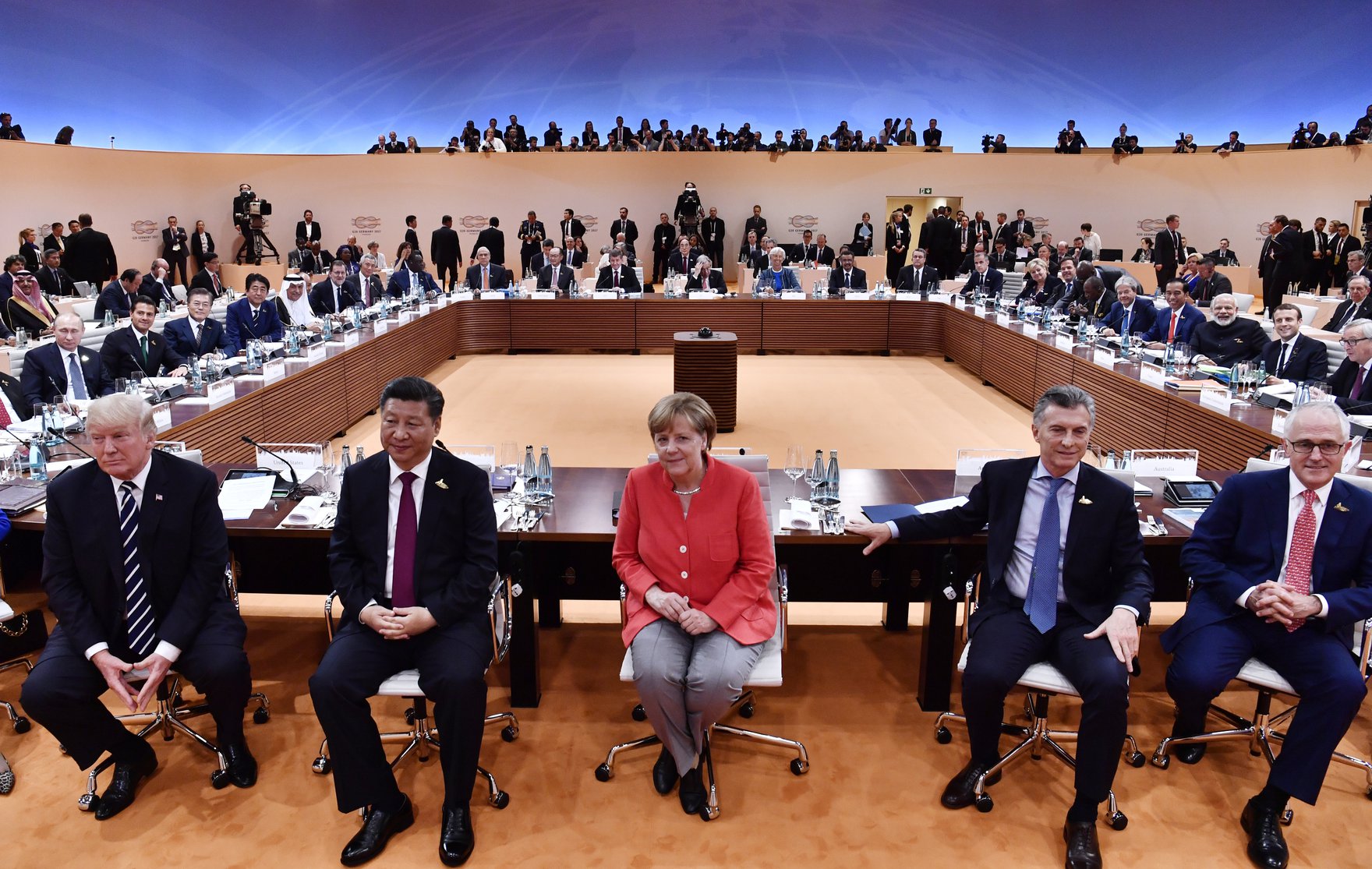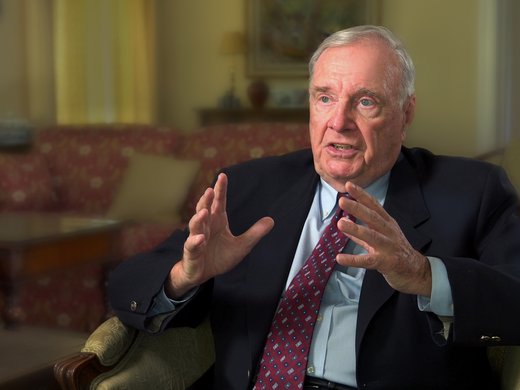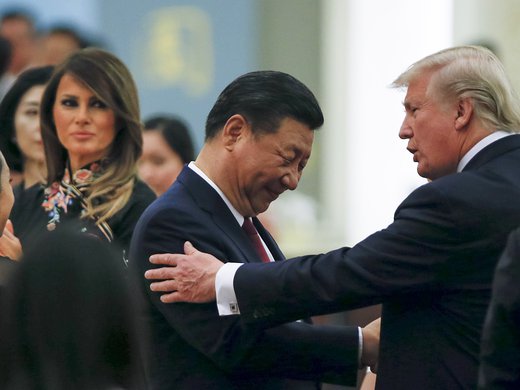Remember the Group of Twenty (G20) summit four years ago in Brisbane, Australia?
Don’t worry if you don’t. The G20 isn’t exactly working to keep the annual forum on the world’s radar. The “2 in 5” promise — an initiative sparked in Brisbane to increase the group’s collective GDP by two percent in five years — is a good example. The deadline for that increase is this year, and guess what? The G20 has come up short.
“As of mid-2018, the implemented structural reform and infrastructure spending commitments made at the Brisbane, Antalya, Hangzhou, and Hamburg summits have fallen short of the original ambition to raise the level of G-20 GDP by an additional 2 percent between 2013 and the end of this year,” the International Monetary Fund (IMF) observes in its latest report card on the group’s efforts to strengthen the global economy.
The Brisbane flop highlights the G20’s biggest problem: credibility. To be sure, geopolitics has entered a strange, unpredictable and possibly dangerous phase. Any group that puts the leaders of the United States, China, Russia and Saudi Arabia in the same room in 2018 would struggle to achieve anything meaningful. Though the G20 was already struggling to achieve anything significant before 2016, the cracks in the G20’s credibility have widened as a result of US President Donald Trump’s election. And it’s unfortunate timing; the world desperately needs an effective international institution.
The IMF didn’t say by how much the G20 missed its GDP goal. According to John Edwards, a senior fellow at the Lowy Institute, pledges made in 2014 have increased economic output by 1.2 percent; the update came from David Gruen, Australia’s current G20 sherpa, at a conference in Sydney on November 1. Given IMF Managing Director Christine Lagarde’s assessment of the state of the world ahead of the Buenos Aires summit, it’s safe to assume she’s underwhelmed by her the G20’s more recent performance.
“During the ten years since the first G20 Leaders’ Summit, the G20’s efforts have been crucial in helping the global economy recover,” Lagarde wrote in a blog post that IMF published on November 28. “Yet darker clouds are now returning to the horizon.”
G20 leaders were probably feeling pretty good about themselves back in 2013 when Australia took over the rotating presidency; they had fought off a depression, after all.
Still, the economic recovery lacked momentum. So, the self-appointed steering committee of the global economy took it upon itself to organize another round of co-ordinated stimulus. The Brisbane summiteers boasted of putting together a list of some 800 measures that would increase GDP in the years to come. It sounded like a gimmick, and the passage of time would show that to be true. By 2016, the IMF had concluded that the Brisbane goals “seem[ed] out of reach.” There has been little said about them since.
There are lessons to be learned from Brisbane’s commitments.
“One is the relevance of the wise old rule among forecasters — give a number or a date, but not both,” Edwards said in an email. “The other relates to the political temptation of winning headlines with a grand undertaking which cannot be judged until some time after the key players have moved on to other things. The outcome might be to encourage scepticism about promises which depend on the achievement of 800 different reforms by 20 different countries. That might be the good result — to make these idle promises less appealing for future G20 meetings, at least for a while.”
The tenth year of the G20 as a leaders’ forum should come with a frank discussion about its limits. The Argentines have said repeatedly this year that the public should be happy that leaders continue to meet given all the strained relationships. “There is a very clear vision that we have to keep this group alive and functioning in harmony because it is in bad times when we see how important, how key, this group is,” Nicolás Dujovne, the finance minister, told reporters in July.
But surely the G20 can do better than that. The central banks have done a decent job at overhauling international financial regulation. There are gaps, but the system is far safer than it was a decade ago. And countries also have been remarkably effective at executing their technocratic commitments, according to the annual assessments of the University of Toronto’s G20 Research Group.
It’s the big promises that cause the G20 trouble.
After the crisis, the group resolved to avoid tariffs and other trade restrictions. The commitment couldn’t hold. The World Trade Organization (WTO) reported on November 22 that trade worth US$481 billion was impeded by restrictive measures from mid-May to mid-October, the largest amount since the WTO started keeping track in 2012. When it became clear that a glut of steel was becoming a political issue, the G20 said it would do something about it. Nothing happened. That created the conditions that allowed Trump to act on his own, issuing steel and aluminum tariffs under the guise of national security that triggered the trade war. The G20 had no answer.
“We are working to strengthen the contribution of trade to our economies,” G20 finance ministers stated meekly after a meeting in July.
It’s not just the G20; expectations for international summitry rarely have been lower. The leaders of the Asia-Pacific Economic Cooperation group couldn’t even agree on a communiqué when they met in Papua New Guinea earlier this month. The buzz ahead of the Buenos Aires Summit has been about side events, including a dinner between Trump and his Chinese counterpart, Xi Jinping (which may be the main event of the summit) and a possible signing ceremony for the new United States-Mexico-Canada Agreement.
The G20 needs to earn some clout — fast — or risk becoming as irrelevant in global affairs as the Group of Seven. IMF research suggests that the right mix of policies could raise GDP by four percent. Instead of promising hundreds of measures, each country could choose one from the IMF’s list and promise to implement it. For example, the United States. could ease up on fiscal stimulus, which is forcing the Federal Reserve to raise interest rates to stay ahead of inflation; Italy could pledge to reduce debt; and Canada could promise to spend more on research.
Politicians tend to prefer grand gestures, but those haven’t worked very well for the G20 lately. The group needs to show it is capable of making a difference. If it doesn’t, it could find that it lacks the credibility it will need to fight the next crisis.




